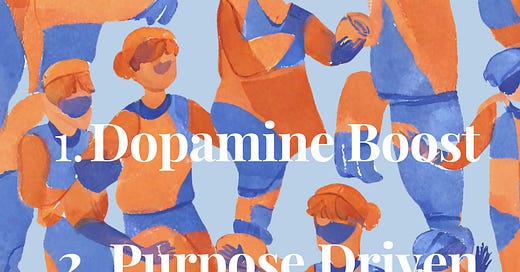“Doing good does you good” – Unknown
In our three-part series discussing healthy coping mechanisms, we will be discussing an embodiment of gratitude: Volunteering. Gratitude is one the greatest expressions of humanity as it offers us a chance to appreciate our relationships, opportunities, blessings, and fortunes. It’s about valuing the tangible and intangible aspects of our lives - the ‘what’ being the material possessions we’ve accumulated, and the ‘who’ being the family, friends, mentors, and community members who serves as assets to our well-being. Recognizing these elements is straightforward, but truly appreciating them requires genuine intentionality.
Gratitude manifests differently for everyone, but one universal expression is volunteering. Amid feelings of sadness, depression, or distress, it’s easy to become consumed by our emotional state. However, focusing on gratitude and cherishing what we have can positively impact our mental health and overall well-being. Volunteering allows us to practice gratitude by assisting those with more immediate needs, thus improving our mental health as we aid the less fortunate during this process.
Immersing ourselves in our problems can make us feel like the center of the universe, but there are likely many who would gladly trade places with us. Research has shown that volunteering benefits people of all ages by boosting self-esteem, fostering social connections, and promoting well-being (Mental Health Foundation). Volunteering enables us to express gratitude, appreciate our blessings, and shift our perspective by making a difference in someone else’s life. It is a coping mechanism that is rarely discussed, but one that can serve as a life-changing activity for all parties involved.
You don’t have to be wealthy or affluent to offer your time to a community project, homeless shelter, or a food drive! Simply put, volunteering is a way to give back to others but also to yourself!
Here are 3 health benefits to volunteering:
1. Dopamine Boost! Research has shown that volunteering your time, energy and giving back can release a large amount of dopamine in your brain also known as the “helpers high”. Giving back will put a smile on someone else’s face but also yourself!
2. Purpose Driven! Volunteering provides you with a sense of purpose as you help contribute to a vision that is bigger than just you.
3. Connected! Volunteering provides a sense of connection with others and fosters feelings of well-being. Relationships are important, and you can build them by volunteering with family, friends, or creating new relationships through positive social interaction.





